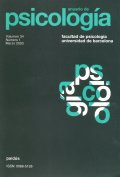Buscando a Hal desesperadamente: de la psicología cognitiva a la psicología del conocimiento
Paraules clau:
Explicit representations, implicit representations, knowledge, content, consciousness, culture.Resum
Afterfive decades of research, the prevailing computational approach in cognitive psychology has made muny important contributions, both theoretical and empirical, to our understanding of how the human mind works. However, some of its most significant promises are still unfulfilled; paradoxically, these promises are related to the more specifically human components of the human mind such as emotions, intentions, conceptual learning, and meaning. We suggest that all these components can be explained in terms of the specific (in the strong sense) capacity of the humanmind, when compared with other cognitive systems, to work with knowledge. To study how the mind knows, or uses explicit representations and not only implicit ones (as do the remaining cognitive systems) we must assume, within the cognitive framework a "psychology of knowledge" approach
based on the study of three specific dimensions of human knowledge - content, consciousness and culture - that are clearly missing in traditional cognitive research. Only through this approach we will be able to make sense of Hal, the "human" robot that Arthur C. Clarke once imagined.
Descàrregues
Publicades
2003-01-11
Número
Secció
Articles
Llicència
El/la autor/a que publica en esta revista está de acuerdo con los términos siguientes:
El/la autor/a cede en exclusiva todos los derechos de propiedad intelectual al/la editor/a para todo el mundo y toda la duración de los derechos de propiedad intelectual vigentes aplicables.
El/la autor/a puede difundir una copia de sus artículos respetando la política de acceso libre de la revista.


